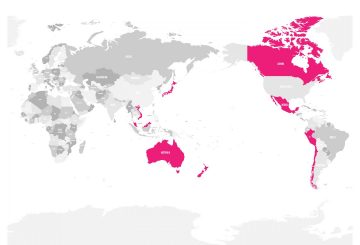A new forum is being planned in Invercargill in 2022 to expand Southland’s business connections with the Asian market.
Great South Asia market development manager Ella Zhang said there were “significant opportunities” for Southlanders to establish connections with the Asian market –most simply weren’t aware of them.
The recent Te Waipounamu and Asia Foundation report, released in October, had found personal connections were essential in entering Asian markets.
Zhang was ready to use hers to expand the regions potential through inviting Asian ambassadors and investors to join with business owners in Southland in a forum next year.
“First and foremost, people think it’s very daunting to either export or do business in Asia. I want to break that barrier,” she said.
“I want to make this a launching pad for us, to show our region is ready to do business with Asia, and to showcase the excellence and expertise we already have here.”
Southland businesses had a perception that the Asian market was “too difficult” to enter or believed they weren’t big enough for large e-commerce platforms such as Alibaba – which was false, Zhang said.
“I think its [the] natural mindset of the local people, we’re just doing our thing, we don’t like to brag about it. I think we’ve missed out a lot of opportunities … If people don’t know about us, they don’t know to reach out to us,” she said.
Since the establishment of her role about 12 months ago, Alibaba country manager Pier Smulders had visited on four separate occasions and was “blown away” by the offerings available both in the export and tourism sectors, she said.
“He had never been down here before … And [now] he’s actively talking with different companies about how he can help them utilise the Alibaba platform to export … I think that just shows you the connections that are available.”
Previously, Great South general manager of strategic projects Stephen Canny said Southland exporters could take on between five and ten million extra consumers through targeting high value middle class Asian markets.
The New Zealand Functional Foods oat milk plant, currently in its capital raising stage, alongside the potential use of by-products within the meat and seafood sectors to create salmon oil supplements and pet food would appeal to current trends in that market, Zhang said.
Currently, Southland meat producers generally sold their by-product to companies outside the region.
“For us, it’s like “hold on, we sell that for almost nothing, and they [companies from outside the region] use that to move up the value chain, make their own recipe and make a lot of money. Why can’t we do that here?” she said.
The proposed Southland green hydrogen plant had also attracted international interest, with Zhang being approached by trade commissioners in South Korea.
“So it’s not just from a traditional commodity perspective,” she said.
SOURCE: STUFF






























































